Post-review of NATO Climate Killer Part 2: Climate Crossfire Webinar, recorded on December 2nd, 2023, during COP 28
Author: Pippa Bartolotti
As we navigate COP 28, this webinar addressed the pertinent issues of military spending and its environmental ramifications.
Ably introduced by the Canadian policy analyst IPB Vice President Steven Staples, this important webinar discussed in detail the links between the military and environmental degradation. Taking place on Day 4 of the COP 28 summit in Dubai, it was a thorough reality check.
The first speaker was Nick Buxton, Transnational Institute, who had some superb graphics and data to support his call to shrink the military, boost renewables and fund poorer nations in their efforts to combat the climate change they did not cause.
He explained that, in view of global emissions significantly exceeding the pledges to stay within 1.5 degrees of warming, (Paris Agreement 2015) we now only have a tiny window in which to take radical action. Shrinking the military was now critical is we are to deliver climate justice.
The gap between policy and action has increased. Those countries promising to make adjustments by 2050 were basically not planning to make any changes at all. In other words, 2050 pledges are the ‘do nothing’ option.
Nick pointed out that holding this COP in a petro-state such as the UAE was rather like asking the head of a tobacco company to launch an anti-smoking campaign – ludicrous. His research showed clearly that those countries with the highest military spending created the most emissions, and that fossil fuel expansion had been the real aim since the end of WW1 when the Ottoman Empire was carved up to reflect the places where oil pipelines were going. The US backed Israeli onslaught on Gaza in order to claim the gasfields off that coast are an ongoing example of this policy.
The global military spend in 2022 was $2.24 trillion. In 2028 it is expected to be $11.8 trillion. The richest countries spend 30 times more on their military than on supporting a survivable climate.
In 2015 £100 billion was promised to help poorer countries. Only half of that has been delivered to date, and that came late.
Russia spends $158b on the military, China $578b, NATO spends $2,327b – that is 55% of global military spending. Of the 2% of GDP spending goal expected from NATO countries, 20% is targeted to be spent on military equipment, thus enriching the military industrial complex.
Nick showed us a map pinpointing the 750+ US military bases across the world, most of which correlate closely with the infrastructure of resource extraction.
Every country now has Climate Security Plans. The trend is to see climate change as a security issue where the victims are seen as threats, where borders become militarised, where exploitation of the vulnerable is increased, and where any form of peaceful response is denied. Spending on borders alone is now twice the spend on climate finance. NATO is now in place to deal with the consequences of the unstable conditions they themselves have created.
The second speaker was Wendela de Vries of Stop Wapenhandle, has been looking at the lack of transparency and accountability of the military across the globe.
She spoke of hardliners evading the subject of emissions, of the NATO Arctic Command established in order to protect deep sea mining in the Arctic. Of how current discussion is fuelling a new cold war and how closely correlated military spending was to a rise in emissions.
Most military spending is now in equipment not personnel. There is not expected to be a rise in numbers of personnel. But expenditure on ships, tanks and weapons would increase.
The military carbon footprint as of 2021 was bigger than the worlds footprint from civil aviation.
Th US emissions are more than all other NATO countries combined. More than 70% of all military emissions come from the US. 50% is from the military and more than 20% is on weapons manufacture.
Future member contributions to NATO are scheduled to rise to 3% of GDP. This is important for the arms industry who want to consolidate long term contracts, but labor and environmental rights are being damaged in the upscaling of weapons production – largely being driven by the Ukraine war.
Wendela spoke of the greenwashing of military products, such as the fallacious term ‘sustainable defence’ being used to greenwash biofuels and synthetic fuels, both of which still require burning for energy, and which will not reduce emissions at all. In the case of biofuels, enormous amounts of land would be required to grow the feedstock, damaging ecosystems and compromising biodiversity. The military are not going to change their energy systems to electricity as that would make all their ships, tanks etc obsolete. Electric propulsion would require a full redesign, and as military hardware is expected to last 40 years, such a proposal is not entertained.
Nuclear, particularly the plethora of small reactors, will make it much more difficult to control the toxic waste, and is no solution at all.
The arms industry still has huge support, many people still believe that the military make the world a safer place, and that thinking has to change. We have to de-militarize to be more safe.
Some interesting points came out of the question and answer session at the end. There was discussion about health being at the heart of peace, that a peaceful world would enable a healthy and dignified life for all. Others were looking for some way out of our current trajectory of everlasting war where every problem looked like a nail, and needed a hammer to solve it.
There was concern that rich countries did not look after poor countries. On the whole the speakers were not optimistic for the future as we sink into dark circumstances in this crisis of all crises.
The real challenge is to put collaboration before competition, to find a different pathway, and to make war illegal. Hope remains with social movements and in the streets.
Co-organized by four esteemed organizations—the International Peace Bureau, Global Women’s United Against NATO, No to War, No to NATO, and the Asia-Europe People’s Forum—this series of webinars seek to provoke thoughtful dialogue and foster a deeper understanding of the complex interplay between militarism and the environment.
Watch the full Recording in IPB YouTube Page: https://www.youtube.com/watch?v=0axVq1alkkw&t=18s

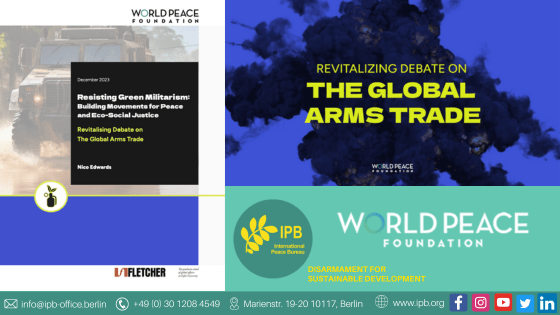
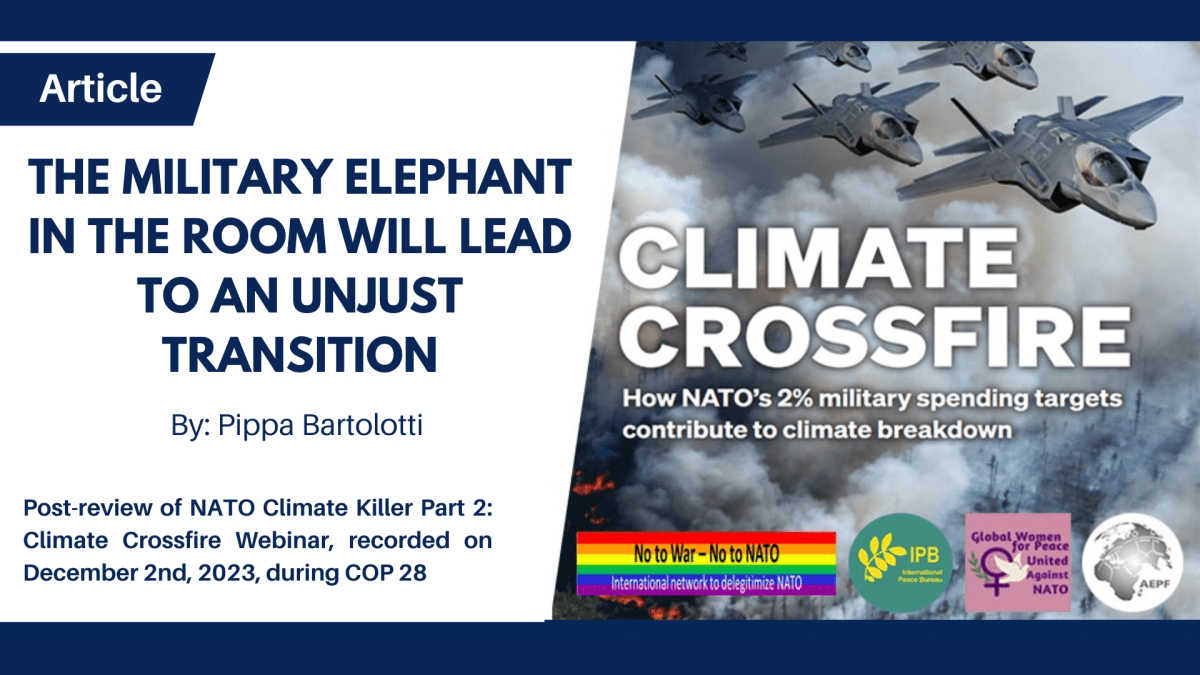
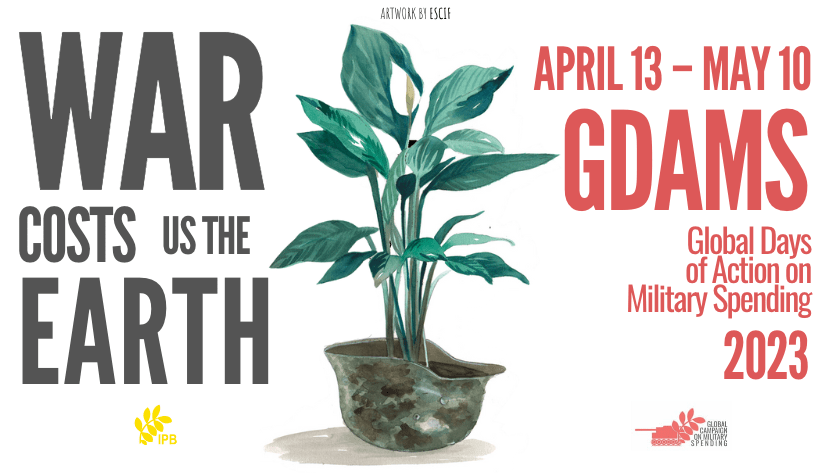
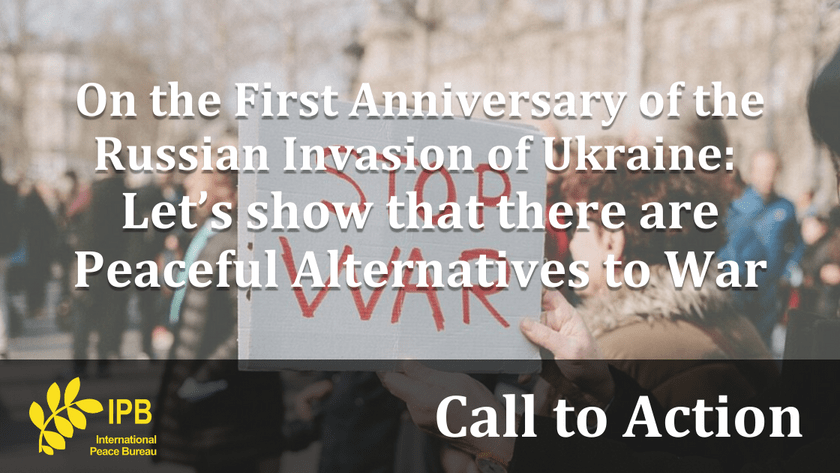
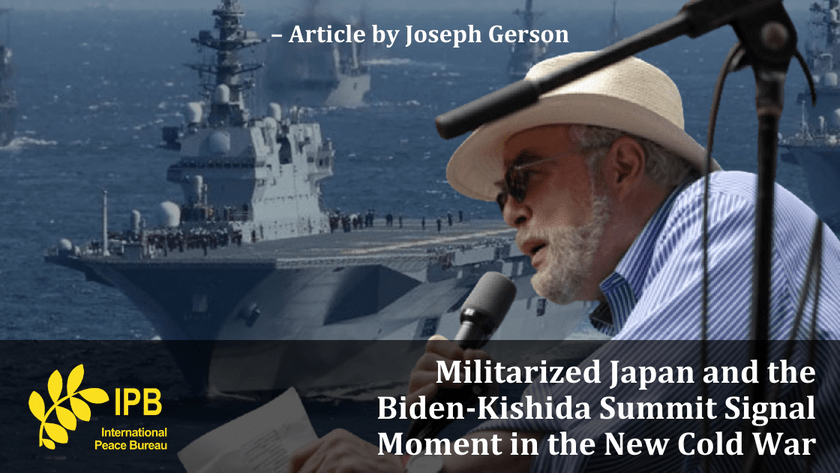
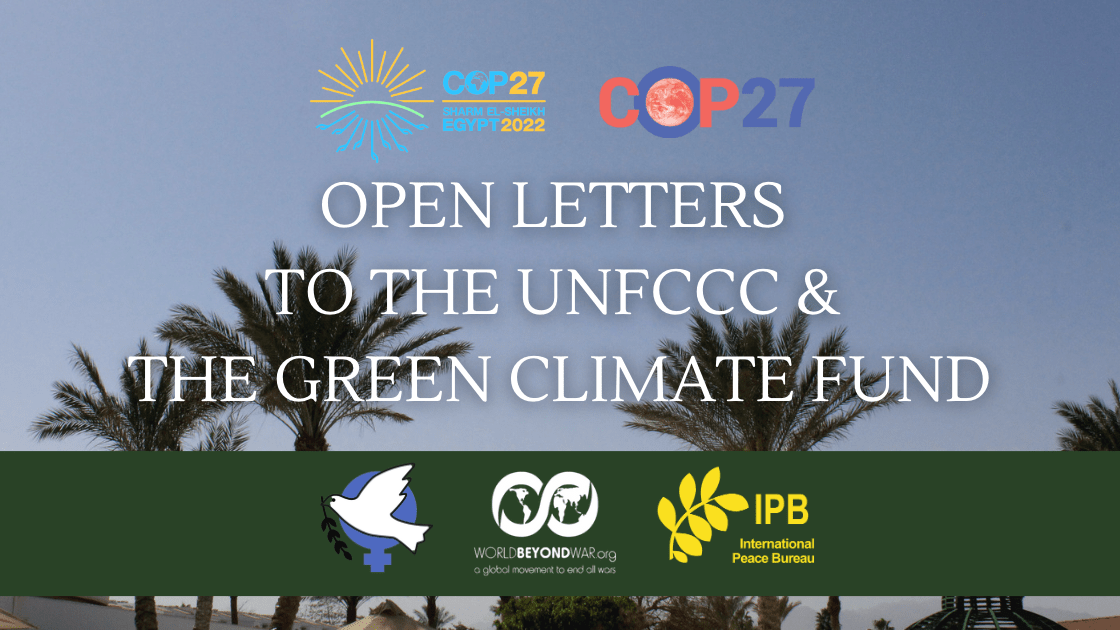
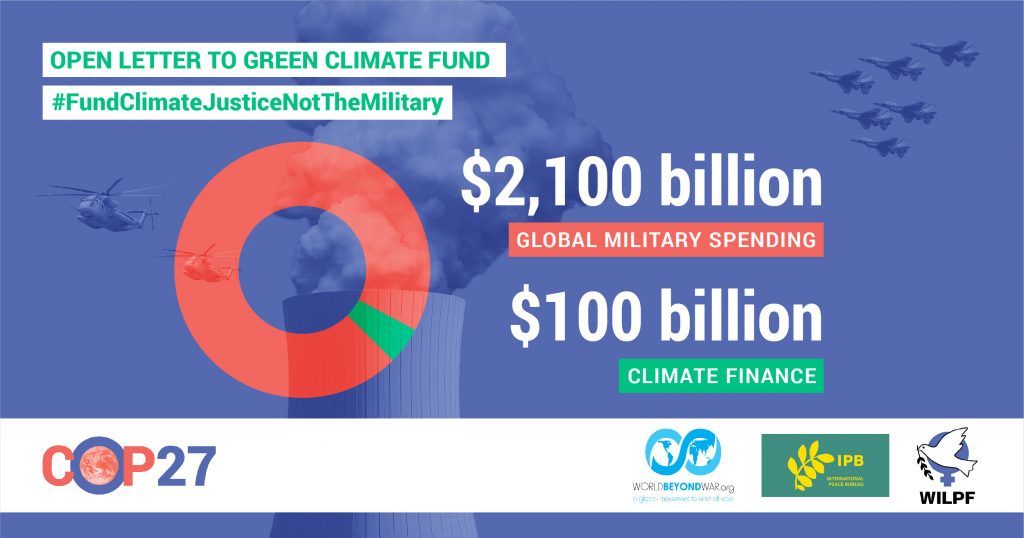
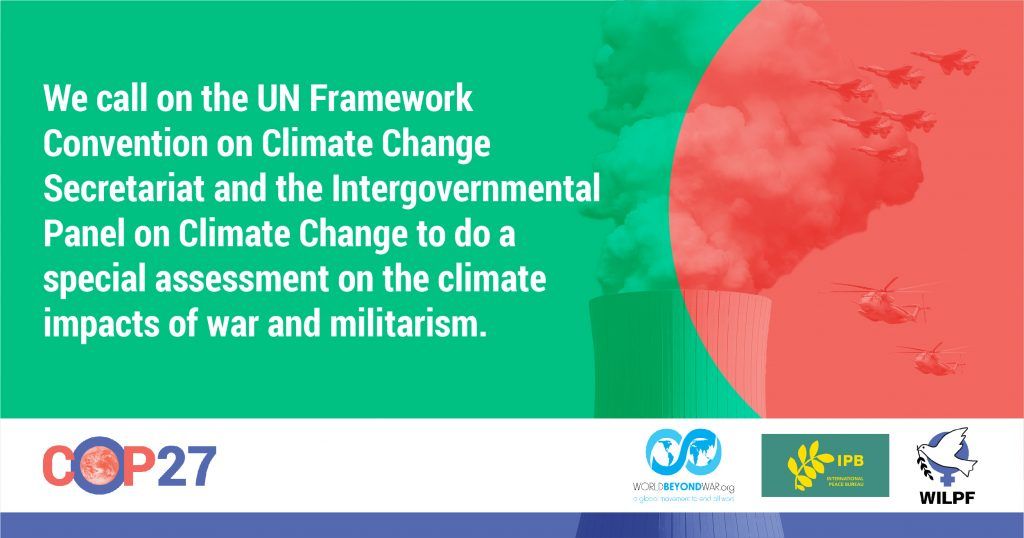
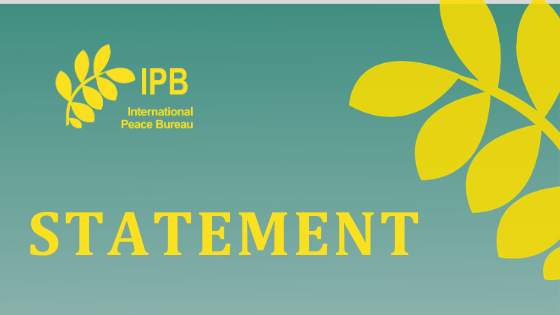

 There was a general consensus in the Berlin Congress organised by IPB (Disarm! for a Climate of Peace: Creating an Action Agenda) that the gathering was a tremendous success. Over 1000 participants from 75 countries participated in a wide range of sessions: plenaries, panels and workshops, as well as side events and cultural presentations. Speeches by experts, activists, politicians, scholars and others provided both inspiration and understanding at a high level.
There was a general consensus in the Berlin Congress organised by IPB (Disarm! for a Climate of Peace: Creating an Action Agenda) that the gathering was a tremendous success. Over 1000 participants from 75 countries participated in a wide range of sessions: plenaries, panels and workshops, as well as side events and cultural presentations. Speeches by experts, activists, politicians, scholars and others provided both inspiration and understanding at a high level.